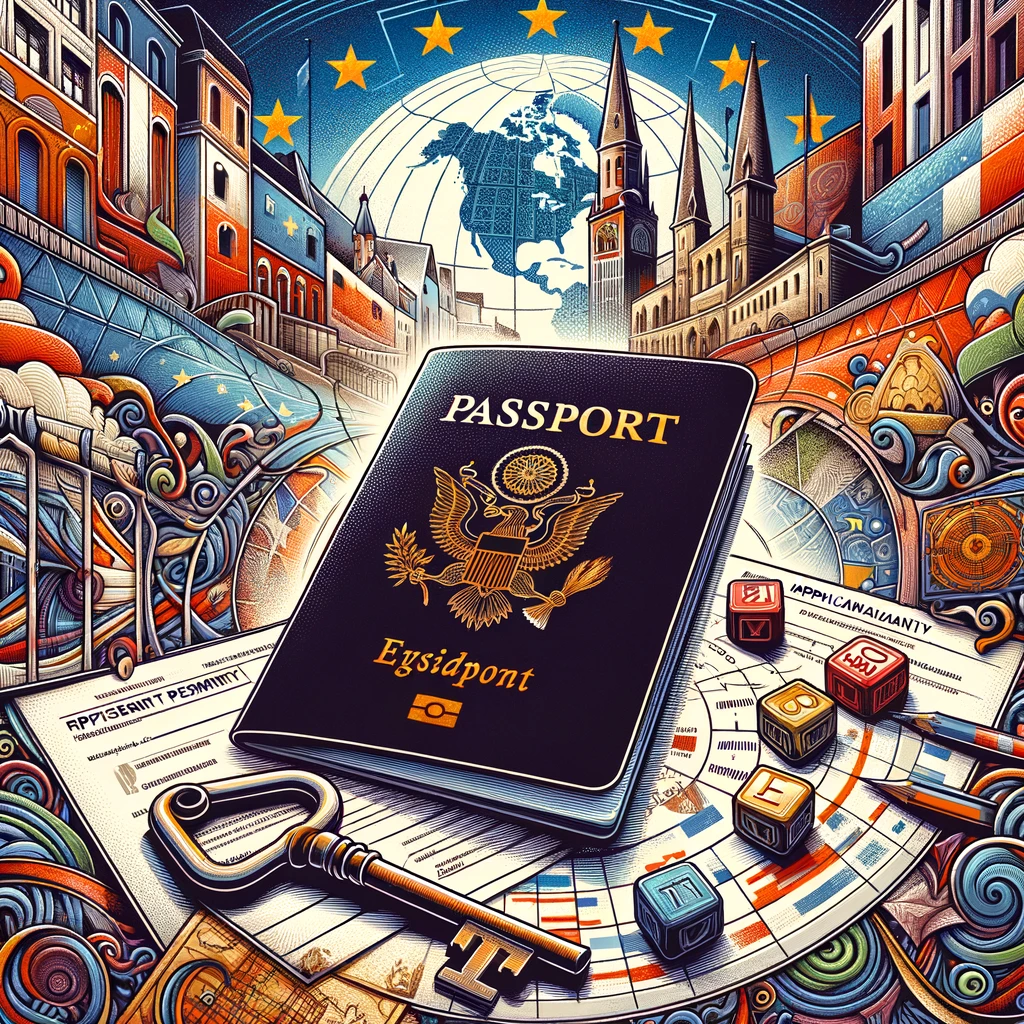The coronavirus has led to a large number of people obtaining long–term residence visas abroad (Golden visa), which can be obtained through investment or real estate purchase. Portugal is one of the most popular countries in Europe and it has low cost of living and ease of living. The golden visas for investments start at 350,000 Euros will be undergoing a major change in 2022 that will place conditions on the real estate area to be acquired. In place of Portugal, the Republic of Malta is attracting attention due to the revision of the golden visa conditions. Malta is one of the few countries in Europe where English is the official language, making it a popular destination for language study.
In this article, I will write about obtaining a Golden Visa for the Republic of Malta.
About the Republic of Malta
The Republic of Malta consists of three main islands; Malta,Gozo and Comino, which are located in the heart of the Mediterranean Sea just below Sicily of Southern Italy. It has a long history way back 5000 BC.
In 1980, the entire city of Valletta, the capital, was registered as a World Heritage Site. Malta has a mild climate and safe environment which is known as one of the best resort areas in Europe and is one of the most popular destinations for studying abroad and immigration.
Malta has a dry Mediterranean climate with little rainfall throughout the year. Summers are dry and hot. Sunscreen, sunglasses, and other sun protection are essential. During winter, even in the coldest season, the minimum temperature is around 10 degrees Celsius. However, there is a big difference in temperature between mornings and evenings. At night it gets quite cold. So, you will need a good jacket and thick clothes.

Its foods are Italian and Mediterranean cuisines are well known due to geographical factors. But there are also strong influences from its nearby countries such as England, Spain, France, and North Africa. On the other hand, Malta’s traditional cuisine, such as home-cooked rabbit and octopus which is not customary to be eaten in Europe has been passed down from generation to generation and a wide range of meals can also be enjoyed.
The official languages of Malta are Maltese and English. But most Maltese can speak English fluently. There are only few countries in Europe where English is the official language. Since joining the EU in 2004, Malta has been attracting attention for travelers, l and those who wants to study. One of the main attractions of Malta is that you can live in a medieval European city enjoying Mediterranean cuisine and speak English without any difficulty.
- Major languages: Maltese, English
- Population Approx.: 430,000 (2016 / Ministry of Foreign Affairs)
- Area: 316 km²
- Capital city: Valletta
- Main religion: Catholicism
- Currency: Euro (€)
Malta’s Economy and Real Estate
Malta’s economy stagnated for a while after 2009 due to the Lehman Shock in 2008. It has dealt a major blow to the European economy since 2013. However, the economy has recovered its phase, and real GDP growth has continued to grow steadily, at +8.3% in 2014, +7.4% in 2015, and +5.0% in 2016. Growth in tourism and the emerging financial services sector has been particularly strong. With a real GDP per capita of about $20,000 in 2016, a Consumer Price Index (CPI) of 0.9%, and an unemployment rate of 4.8%, it is one of the richest countries in Europe.

The country has been active in attracting foreign companies, and European companies in the fields of finance, information, electronics, and transportation which have taken the lead in making significant contributions to the Maltese economy. Real estate prices have also remained strong: according to data released by the European Union’s statistics office, Malta’s real estate prices rose by 6.2% in 2015 compared to the same period in 2014, the highest rate of increase in Europe. (2.3% for the Eurozone as a whole, 3.1% for the EU as a whole.) With high demand from foreign investors and long-term residents and limited supply. Property prices are expected to continue to rise.
Main Qualification Requirements for Applicants
- Must be at least 18 years of age and be able to prove that they have an annual income of at least 150,000 Euros or assets of at least 500,000 Euros;
- Invest (buy or rent) in real estate that meets the requirements set by the government and hold it for at least 5 years;
- Pay €340,000 to the Maltese government (not to be repaid)
- Donation of €2,000 to a Maltese volunteer organization (new after March 26, 2021);
- Have no criminal record (please provide proof of no crime);
- Must pass personal due diligence;
- Purchase of medical insurance (health insurance covering at least €30,000 in the EU); and
- Be a citizen of a non-EU country.
Subsequent Applicant Requirements
- Legal spouse of the main applicant;
- Children under the age of 18;
- Children over 18 years old, unmarried, and not financially independent; and
- Parents and grandparents of the principal applicant and spouse who are not economically independent.
Points

- Fewer requirements for applicants: business background, language skills, education, age, and source of investment funds are not required;
- Low and cost-effective investment requirement: if you rent a property, you can get an immediate long-term residence permit with a minimum investment of €260,000;
- Fast turnaround time from application to granting of residence permit: Right of residence can be granted in about three months after submission of required documents;
- Four generations can immigrate: only the main applicant needs to apply and four generations of the family can be granted a residency at the same time;
- Short period of stay required in Malta: Only one entry is required before application;
- Low investment risk: Maltese government bonds are rated A and are a relatively low-risk investment;
- Income earned outside Malta is not taxed in Malta. (Local income is taxed.);
- Visa-free movement is possible in the Schengen area (26 European countries including Malta).
In the case of past patterns, the applicant must be in Malta at the time of application, but must hold the visa for five years thereafter, and is not required to live or travel there. Applicants must be at least 18 years of age and be able to prove that they have an annual income of at least €150,000 or assets of at least €500,000, and language skills are not required. Malta is a good choice for those who want to obtain permanent residence in the EU.




Comments